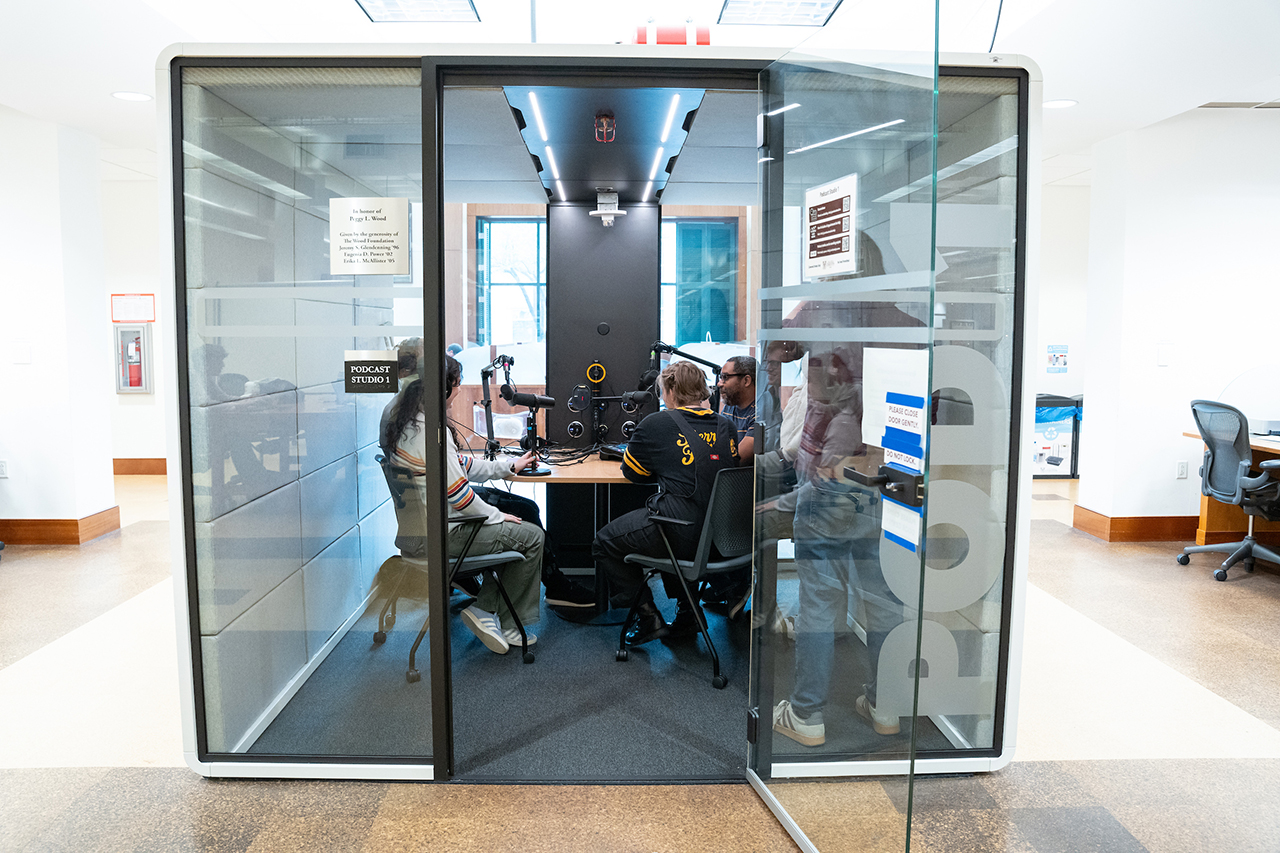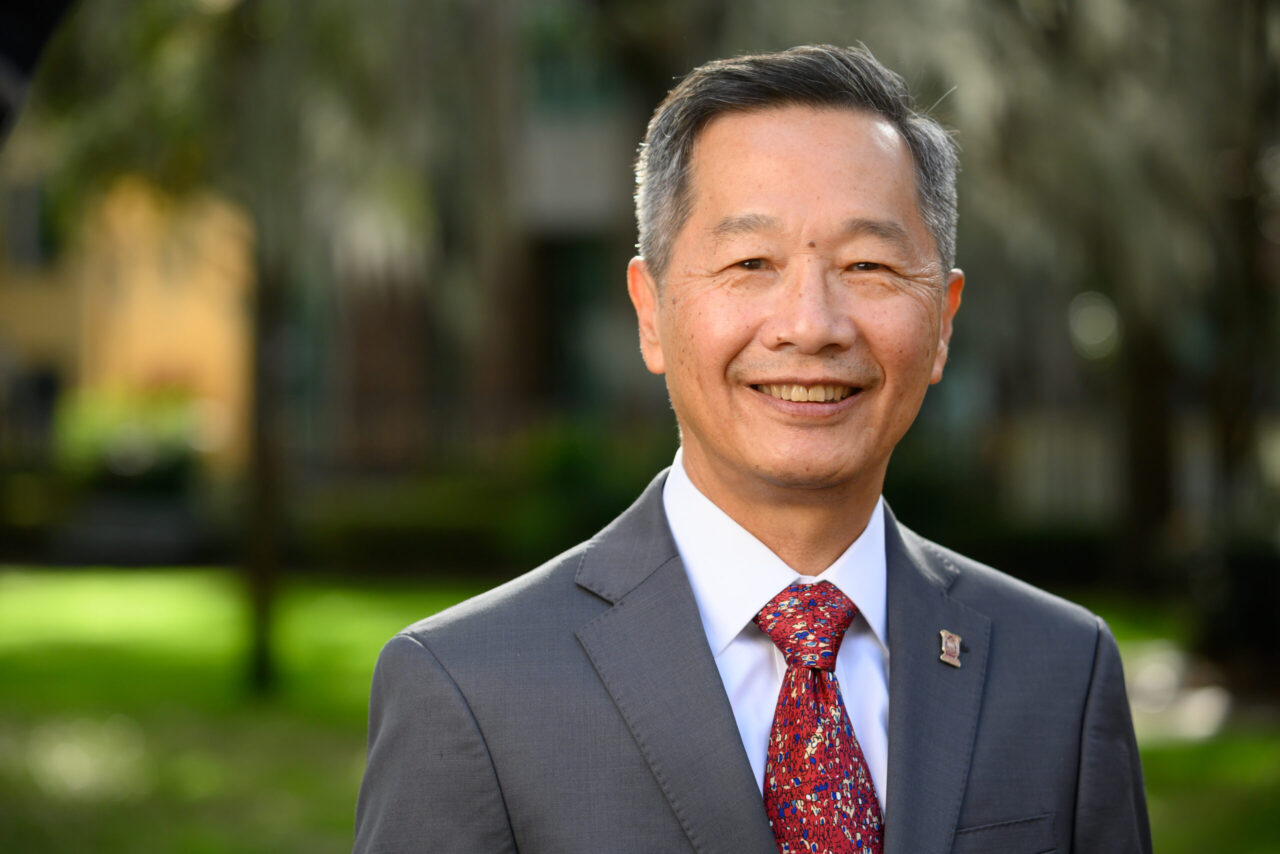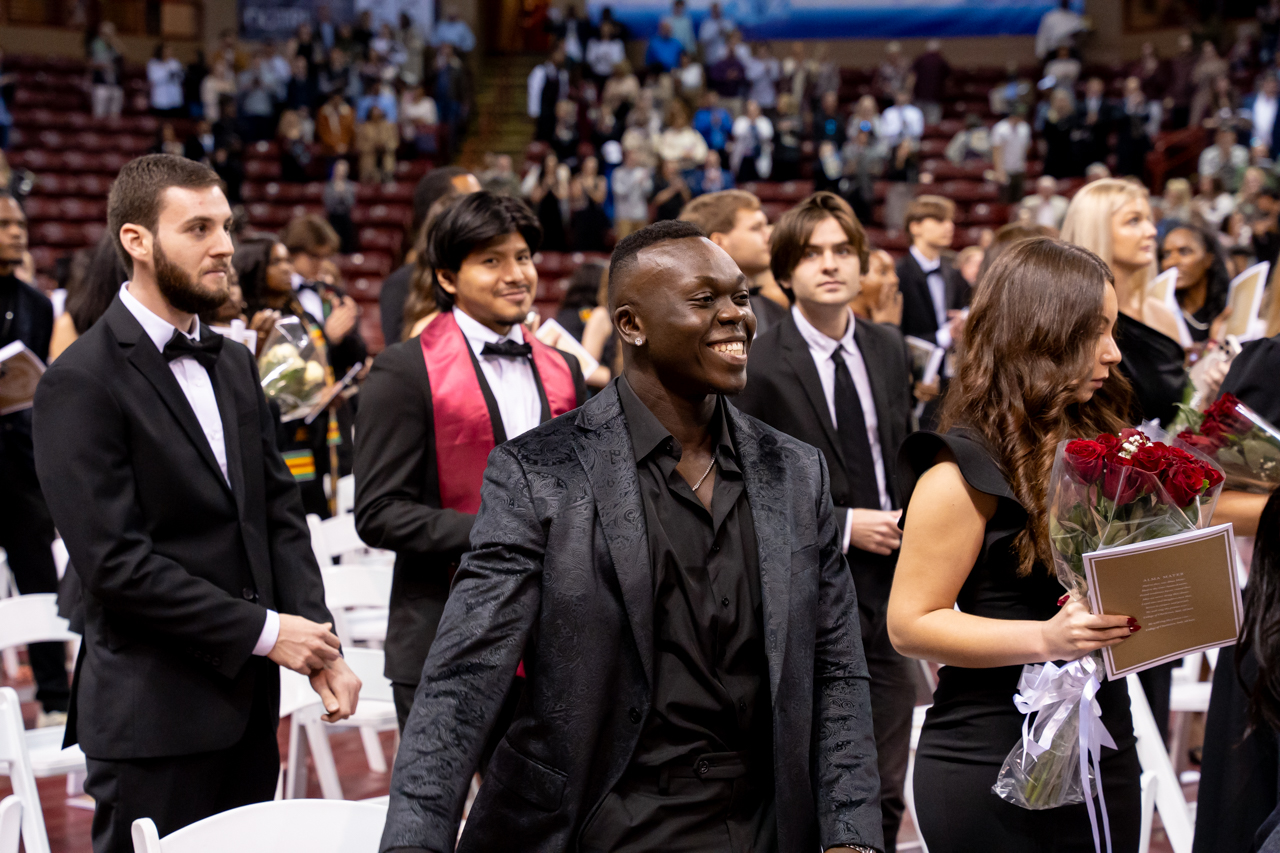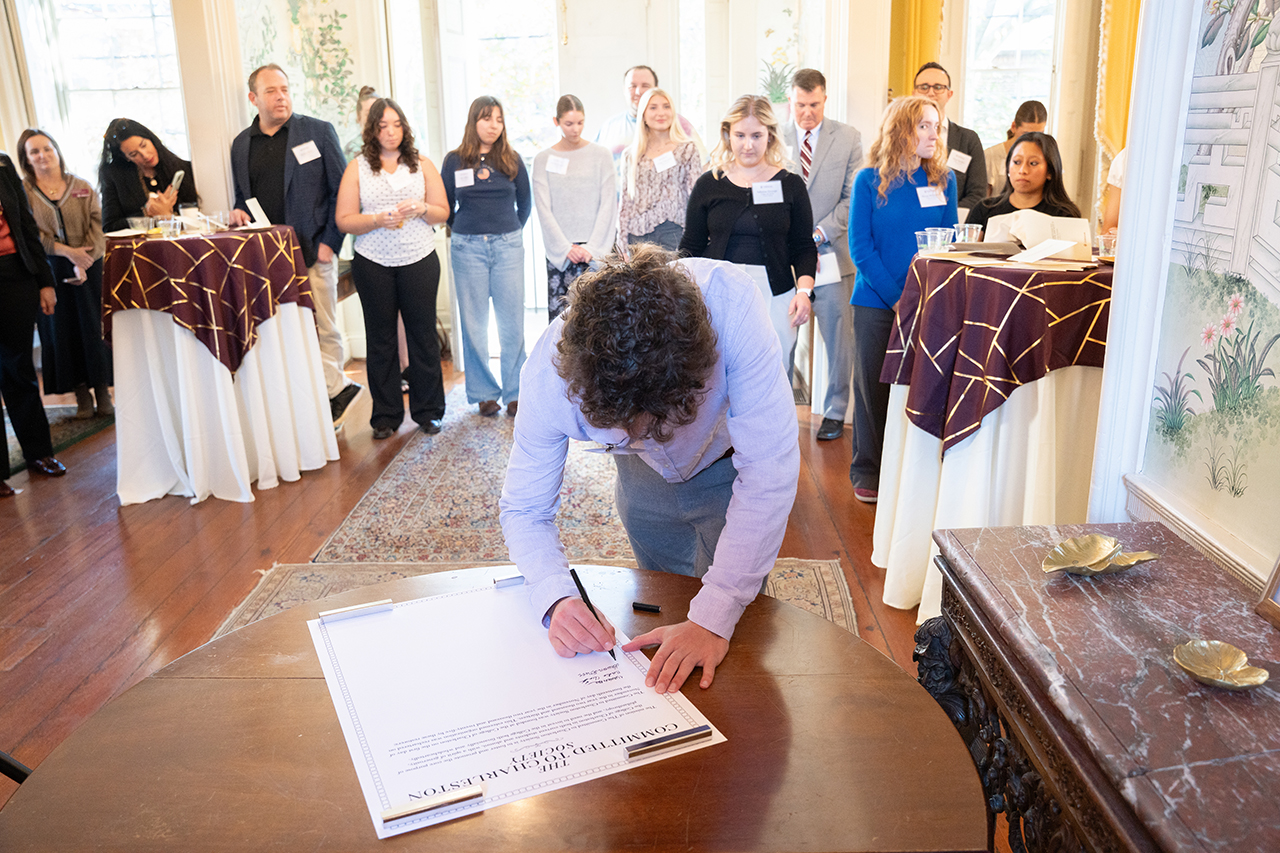College of Charleston Receives Grant to Share Lowcountry Stories
As part of its Broadening Narratives Initiative, the Gaylord and Dorothy Donnelley Foundation awarded a grant to the Lowcountry Oral History Initiative at the College of Charleston Libraries.

Above: Adjunct theatre lecturer Michael Smallwood ’09 (center) with students in the Addlestone Library podcast studio (Photos by Catie Cleveland)
The Gaylord and Dorothy Donnelley Foundation generously awarded a $100,000 grant to the Lowcountry Oral History Initiative at the College of Charleston Libraries. The grant is through the foundation’s Broadening Narratives Initiative, which aims to preserve and share underrepresented stories. The College is one of three organizations to receive support for its innovative oral history and cultural preservation efforts.
“We are proud to support the vital work these organizations are doing in not just preserving Lowcountry history, but in making it relevant and accessible,” says Arnold Randall, executive director of the Gaylord and Dorothy Donnelly Foundation. “These stories illuminate our understanding of the past, present and future of the region.”
This grant to the Lowcountry Oral History Initiative represents the foundation’s second grant to support LOHI’s work to capture and share recorded memories from across the region. By documenting communities of color, LGBTQ+ perspectives, working-class narratives and other underrepresented voices, LOHI expands both the academic record and community ownership of local history. The grant supports training for students, faculty and members of the community to conduct interviews. The recordings are made available through the Lowcountry Digital Library.

“The Broadening Narratives program arrived at the College of Charleston like a gust of fresh air,” says John W. White, dean of the College of Charleston Libraries. “LOHI empowers communities with tools to author their own narratives to ensure their histories reflect the hands that shaped them.
“Through its support of the Lowcountry Oral History Initiative, the College further bridges the gap between traditional scholarship and community-driven public history,” he continues. “LOHI invites students to engage with histories crafted not exclusively by scholars but by those who lived them – and our faculty and researchers weave these newly unearthed stories into curricular and scholarship.”
Adds Heather Gilbert, associate dean of CofC Libraries collection and content services: “GDDF’s support allows us to offer our partners the critical, capacity-building training and resources necessary to document and steward their own histories, their own way. This work deeply enriches the historical record in new and exciting ways.”
LOHI is part of the long history of oral history at CofC Libraries that began in 1995.



